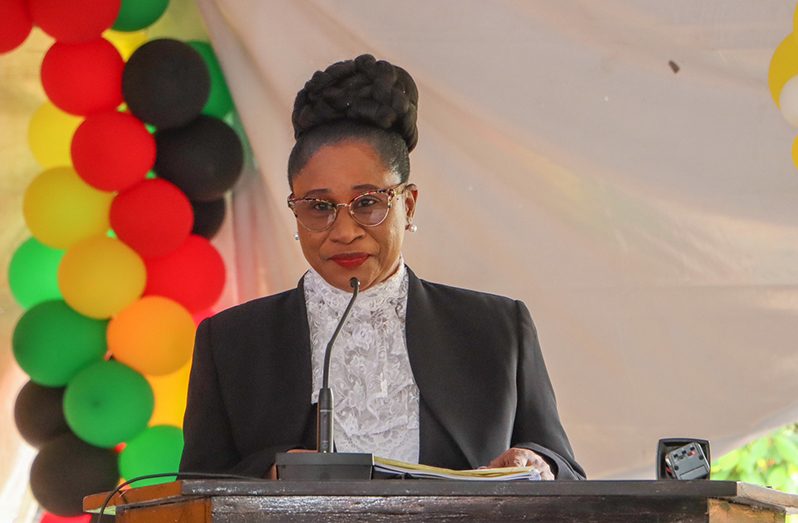IN a recent address at the opening of restorative justice training for practitioners, Chancellor of the Judiciary (ag), Justice Yonette Cummings-Edwards, emphasised the indispensable role of collaboration in the pursuit of a more comprehensive justice system.
While courts play a critical role in the justice system, she said they are unable to handle all aspects of crime and conflict resolution on their own. Given this, she highlighted the need for collaboration between traditional legal processes and alternative approaches like restorative justice, while acknowledging the limitations of courts operating in isolation.
According to her, a collaborative approach that integrates both traditional legal proceedings and restorative justice principles is essential for fostering safe societies.
In her speech, she alluded to the advantages that the legal community will experience from the integration of restorative justice in the legal system.
“Our system of justice [retributive justice] focuses on punishing the offender in relation to the offence that has been committed. With restorative justice, on the other hand, the focus is on restoring the harm done or caused by the offender, holding him/her accountable for the wrongdoings and addresses the needs of the victim, giving the victim a voice and helping the offender to mend his ways and to also be reintegrated into society…”
The Chancellor stated that the courts “cannot do it alone” and that the assistance of restorative justice practitioners will undoubtedly help in having a better society.
Citing the English poet John Donne’s poem “No man is an island”, she added: “We are all part and parcel of the society so we need each and every one of you to take part in this training programme and to give it of your best so that at the end of the day, the restorative justice service that will be provided to members of our community would examine the harm caused and provide solutions to that wrongdoing.”
She said that restorative justice would result in fewer people being incarcerated and that people would have quicker access to conflict resolution than under the regular judicial system.
“The Police will have less work, too, in terms of their investigations. We will have timely investigations, and more expeditious and efficient hearings of cases. Those are the benefits when we compare and contrast the restorative justice system and the traditional criminal justice system,” said Justice Cummings-Edwards.
The training is being provided under the Canada-CARICOM Expert Deployment Mechanism in collaboration with the Attorney General Chambers and Legal Affairs Ministry.
A Restorative Justice Act was enacted in 2022 to overcome prison overcrowding by reducing pre-trial detention, reducing recidivism, and increasing the use of alternative sentencing, among other things. The Act’s passing led to the construction of a Restorative Justice Centre, located at 341 East Street in South Cummingsburg, Georgetown. The centre’s services are free of cost.
All impacted parties are intended to be involved in the settlement process by restorative justice, a framework that focuses on mending the harm caused by crime through dialogue and settlement. This strategy puts less emphasis on punitive measures and more on healing and resolving the underlying causes of wrongdoings. Restorative justice aims to empower those affected and restore relationships in addition to holding offenders accountable by bringing together victims, the community and the offending parties.
Only certain minor offences are eligible for restorative justice.
Therefore, restorative justice does not apply to serious crimes such as robbery, manslaughter, murder, sexual offenses, and offenses against minors. (Feona Morrison)








.png)







